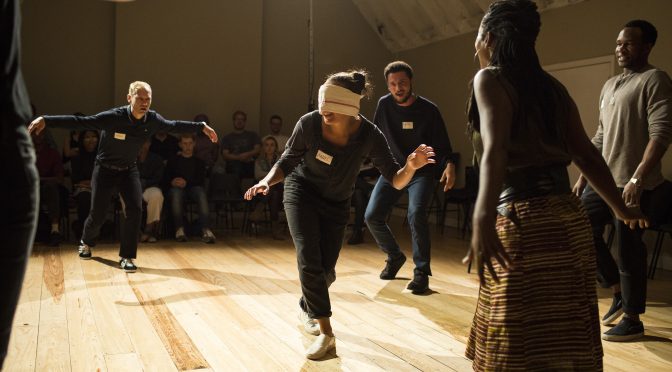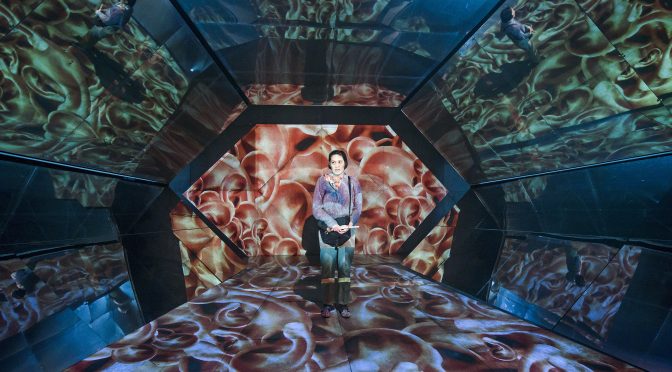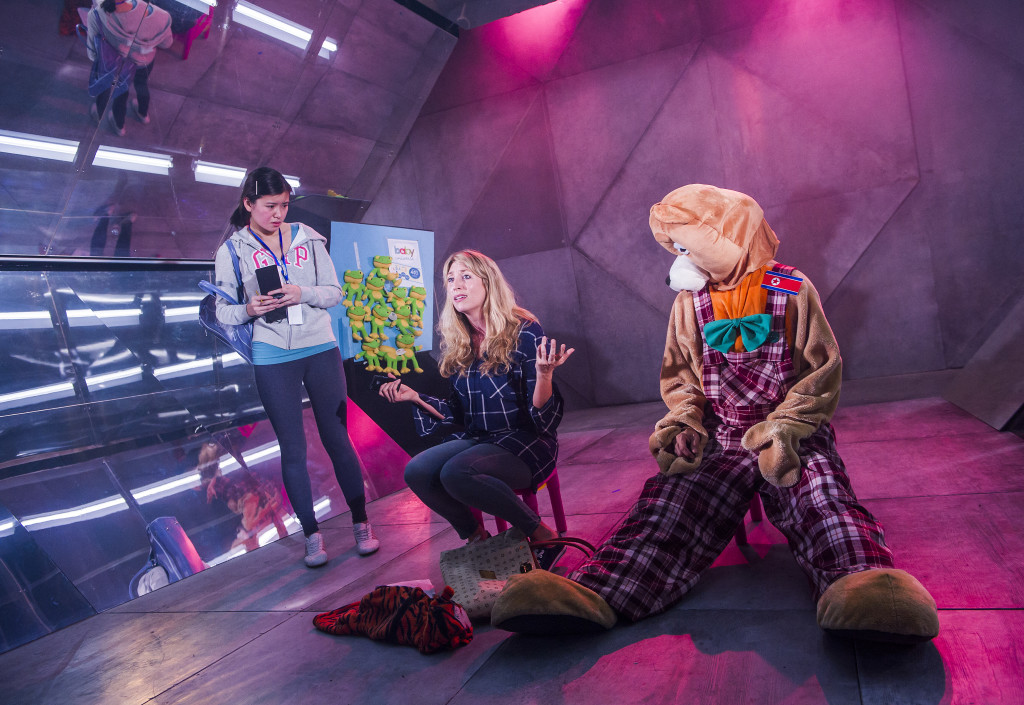The upstairs auditorium at Sloane Square has been stripped back (I didn’t even know the space had windows) by designer Ultz, for Nathaniel Martello-White’s new play. The gathering of an extended family to discuss their painful past is part community meeting part trial, with memories explored and dissected.
Their shared secret is a painful one – the childhood abuse of Angel, who has convened this conference. The play is full of discomforting observations on race and aspiration, offering insight into the impact of abuse on a whole family. Traces of neglect that go back a generation, and anger and confusion carried forward, are painfully rendered and cumulatively overpowering.
Credit to director Richard Twyman, aided by a superb cast, for marshalling a show that, even at 90 minutes long, feels mammoth. Seated in a circle for a lot of the play, we can look anywhere at any time for a committed performance. Franc Ashman, Lorna Brown, Kirsty Bushell and Indra Ové are equally praiseworthy as the four sisters but, if there is a lead credit, Adelle Leonce as Angel fully deserves it. The men in the cast are strong too, with James Hillier grabbing attention as Angel’s stepfather.
With a touch too much backstory for some characters and at least one superfluous subplot, the play’s construction feels overworked. But its formal qualities are adventurous and memorable. Scenes are not presented chronologically. Action and dialogue overlap. Who is remembering what is seldom pinned down. As if all that weren’t demanding enough, there’s some odd language, including clunky flights of fancy, with group discussions interspersed with internal dialogues, one-to-one fights and characters moving back in time to younger stages of life. Various cast members also adopt the role of the grandmother (confusing if you didn’t sneak a peek at the programme before hand).
I was reminded of a video installation, which is one of the character’s jobs, such as Ragnar Kjartansson’s multi-screen show at the Barbican: the audience decides which character to follow. Or a party game played in the piece, where characters making animal noises have to ‘zone in’ on their designated partner. There’s a fine line between all this being engaging and being just a turn off. At times, Torn appears simply obtuse. It’s the author’s prerogative to decide how much aid he gives an audience. I confess I could have done with a little more help here.
Until 15 October 2016
Photo by Helen Maybanks



